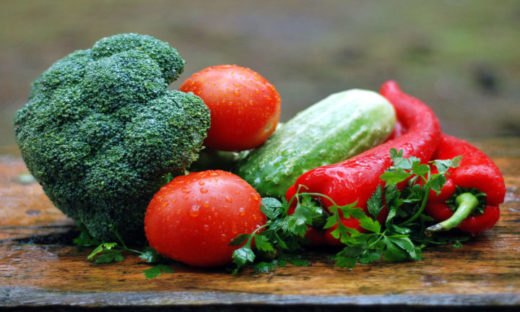“The tastes are six: sweet, sour, salt, pungent, bitter and astringent. Properly used, they nourish the body. Improperly used (either deficient or in excess), they verily lead to provocation of the Dosha. These are three: Vayu, Pitta and Kapha. When they are in their normal state, they are beneficial to the body. When, however, they are disorganized, verily then afflict the body with diseases of diverse kinds.” — Charak Samhita
In Ayurveda, the properties of herbal medicines are described by its ether, air, fire, water and earth elements; taste, cooling or heating energy, post-digestive effect, and special God-gifted qualities. Each herb essentially has its own personality! Let’s focus on Taste and how it helps healing.
Did you know the taste of foods can have tremendous effects on our health? A few years back, I remember hungrily putting a spoonful of Mexican food in my mouth, and nearly gagging as soon the salty taste hit my tongue – Yikes! If the taste of a food is not pleasing to our palate, then our gastric fire may not digest it. Without proper digestion, the body will not receive the nourishment or prana (life-giving cosmic energy) to sustain the body’s immunity.1
If the taste of a food is not pleasing to our Palate, then our gastric fire may not digest it.
Our taste buds have become confused by consuming unwholesome, convenience foods. But, we can change those habits through Ayurvedic cooking. Using the right amounts of herbs and spices will bring balance back to our doshas or bodily constitutions – vata (airy), pitta (fiery), and kapha (earthy) elements.1 Each of the six tastes in Ayurveda – sweet, sour, salty, pungent, bitter and astringent – affect the doshas as shown in the table below.2

Sweet tastes strengthen tissues, build the body, heal bones, promote longevity and are mild laxatives. They create mental harmony and content, but
are also hard to digest. Overindulgence in sweets can cause obesity, diabetes, enlarged glands and promote cancer.
Salty tastes clear channels and pores, improve digestion, moisten and penetrate tissues. In the right amounts, salt pacifies anxiety. Excess salt increases blood flow, wrinkles, grey and balding hair, thirst, skin diseases and weakens body strength.
Sour tastes are good for the heart and circulation, improve digestion, relieve burning sensations and thirst, and get rid of gas. Sour tastes awaken the mind and senses. In excess, however, sour tastes promote envy, hyperacidity, loss of strength, blindness, giddiness, itching, irritability, swellings, thirst and fevers.
Pungent tastes heal throat diseases, allergies, oiliness and skin disorders, edema, ulcers, swelling and excess fat. They also promote hunger, taste and digestion, break up hard masses and open body channels. Pungent taste improves alertness of the mind and senses. But, in excess it causes fainting, tremors, pains, and depletion of reproductive strength.
Bitter tastes heal infections, thirst,
skin disorders, fever, nausea, burning sensations and are easily digestible; they improve intelligence and are drying. In excess, bitter tastes deplete the tissues.
Finally, astringent tastes cleanse the blood, stop bleeding, sweating and diarrhea, and heal ulcers. But they can cause indigestion and tighten tissues. In excess, astringent tastes increase gas, thirst and emaciation; obstruct channels and cause loss of virility, constipation, indigestion and heart pain.
“I have the simplest tastes. I am always satisfied with the best.”
– Oscar Wilde
Ayurveda provides combinations of herbs for healing and bringing equilibrium back to our physical and mental selves. Getting to know the wonderful plant life around will help us best utilize these storage houses of powerful healing energies!
Uma Hingorani
References
1. What to Eat for How You Feel: The New Ayurvedic Kitchen – 100 Seasonal Recipes by Divya Alter. Rizzoli. New York. 2017
2. The Ayurveda Encyclopedia: Natural Secrets to Healing, Prevention, & Longevity by Swami Sadashiva Tirtha. Ayurvedic Holistic Center Press. Bayville, NY. 1998
3. Page 4, The Yoga of Herbs. An ayurvedic guide to herbal medicine. David Frawley and Vasant Lad. Copyright 2001. Published by Lotus Press. P.O. Box 325, Twin Lakes, WI 53181.




